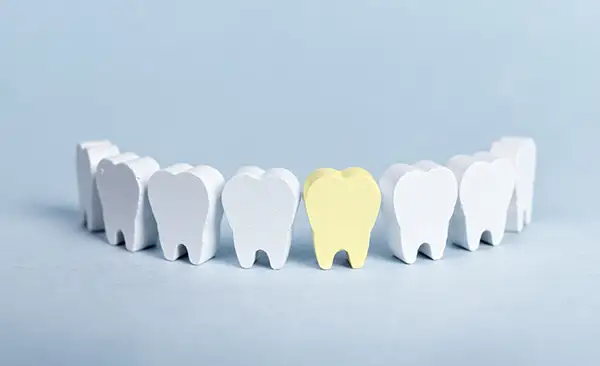Tooth Decay Dental cavities are known as the silent threat to your smile. They don't discriminate, cavities and tooth decay can affect people of all ages, from young children to seniors, making them one of the most widespread oral health challenges we face today. The good news is that with proper knowledge and care, tooth decay is largely preventable. We are committed at Myers Park Dental Partners to empowering our patients with information about how cavities develop, what warning signs to watch for, treatments available, and effective strategies to maintain optimal oral health. Dental cavities are known as the silent threat to your smile. They don't discriminate, cavities and tooth decay can affect people of all ages, from young children to seniors, making them one of the most widespread oral health challenges we face today. The good news is that with proper knowledge and care, tooth decay is largely preventable. We are committed at Myers Park Dental Partners to empowering our patients with information about how cavities develop, what warning signs to watch for, treatments available, and effective strategies to maintain optimal oral health. What is Tooth Decay?Dental cavities (also referred to as dental caries or tooth decay) represent a progressive breakdown of your tooth's protective enamel layer. This deterioration begins when harmful oral bacteria produce acids that gradually dissolve the enamel, creating small openings or cavities in your teeth. Without treatment, this damage continues deeper into the tooth structure, potentially affecting the dentin and inner pulp tissue, which can lead to significant pain, infection, and potentially tooth loss. What makes tooth decay particularly concerning is its often silent progression. In its early stages, you may not notice any symptoms at all. This highlights why consistent dental checkups remain crucial for early detection and intervention. Root Causes of Tooth DecaySeveral interconnected factors can contribute to the development of dental cavities and the development of tooth decay. These can include the following: Insufficient Oral HygieneWhen brushing and flossing routines become inconsistent, plaque easily accumulates on tooth surfaces. This bacterial film processes sugars from your diet, producing enamel-eroding acids as a byproduct. Food and Drink ChoicesThe frequent consumption of sugary treats, acidic beverages, and carbohydrate-rich foods creates an ideal environment for cavity-causing bacteria to thrive and produce damaging acids. Reduced Saliva FlowSaliva serves as your mouth's natural defense system by neutralizing acids and washing away food particles. When saliva production decreases (known as xerostomia), your cavity risk increases significantly. Tooth AnatomyNatural variations in tooth structure, particularly deep grooves and fissures in molars, can create difficult-to-clean areas where bacteria and food particles can become trapped. Health and Lifecycle FactorsCertain life stages, especially early childhood and senior years, and health conditions such as diabetes or acid reflux can increase one's susceptibility to the development of dental decay. Recognizing the Warning Signs of Tooth DecayCatching tooth decay early dramatically improves treatment outcomes. Be vigilant for these potential tooth decay symptoms:
Should you experience any of these symptoms, scheduling a prompt dental evaluation with us is essential. Early professional intervention can preserve tooth structure and prevent more serious complications from occurring. Effective Treatment Approaches for Combating Tooth DecayYour dentist will recommend the appropriate dental treatment based on how far the tooth decay has progressed. Treatment could include any of the following, individually, or paired with other restorations. Professional Fluoride ApplicationsFor very early decay, concentrated fluoride treatments can help strengthen weakened enamel and potentially reverse minor damage before a cavity forms. Dental RestorationsOnce a cavity develops, your dentist will carefully remove the decayed portion from the tooth and restore the tooth with a durable filling material, such as tooth-colored composite resin. Dental CrownsExtensive decay may compromise the structural integrity of your tooth, necessitating a custom-made dental crown to restore function and protect remaining healthy tooth structure. Endodontic TherapyWhen decay penetrates to the tooth's nerve center, causing infection or severe pain, root canal treatment becomes necessary to remove compromised tissue and preserve the natural tooth. Extraction and Replacement OptionsIn cases where tooth damage is too severe for restoration, removing the tooth may be the only viable option, followed by discussing replacement solutions like dental implants or bridges. How to Prevent Tooth DecayTaking proactive steps to prevent tooth decay is far simpler than treating it. Incorporate these proven strategies into your routine:
Our dental team can provide personalized recommendations based on your specific risk factors and oral health needs. Frequently Asked Questions (FAQs) About Tooth DecayHow can I tell if I have a cavity or just tooth sensitivity?Tooth sensitivity and cavities can feel similar, but cavities often cause a more localized, persistent pain. This occurs especially when eating sweet, hot, or cold foods. Sensitivity usually affects multiple teeth and may come and go. If you're unsure, the best way to know for sure is to schedule a dental exam. Your dentist can identify cavities early and recommend the appropriate treatment. Can tooth decay be reversed?In its earliest stages, tooth decay can sometimes be reversed through remineralization - restoring lost minerals to the enamel using fluoride treatments, better oral hygiene, and dietary changes. However, once a cavity forms, the damage is permanent and must be treated with a filling or other dental restoration. Is tooth decay contagious?Tooth decay is contagious, to some extent. The bacteria that cause tooth decay (such as Streptococcus mutans) can be transmitted through saliva, by sharing utensils, kissing, or even blowing on a child's food. While you can't "catch" a cavity like a cold, it's still important to maintain good oral hygiene and avoid sharing items that transfer bacteria. Partner With Myers Park Dental Practice for Optimal Oral HealthWhile tooth decay is common, it doesn't have to impact your smile or affect your quality of life. Our dedicated dental team offers compassionate care, advanced treatment options, and customized prevention strategies to help you maintain excellent oral health. Whether you're due for a routine checkup or concerned about potential tooth decay, our experienced professionals are ready to support your smile journey. Don't wait until tooth pain and tooth decay disrupt your daily life. Contact our Myers Park Dental Partners office today by calling (704) 332-2532 to schedule your appointment and take control of your dental health. |
 |